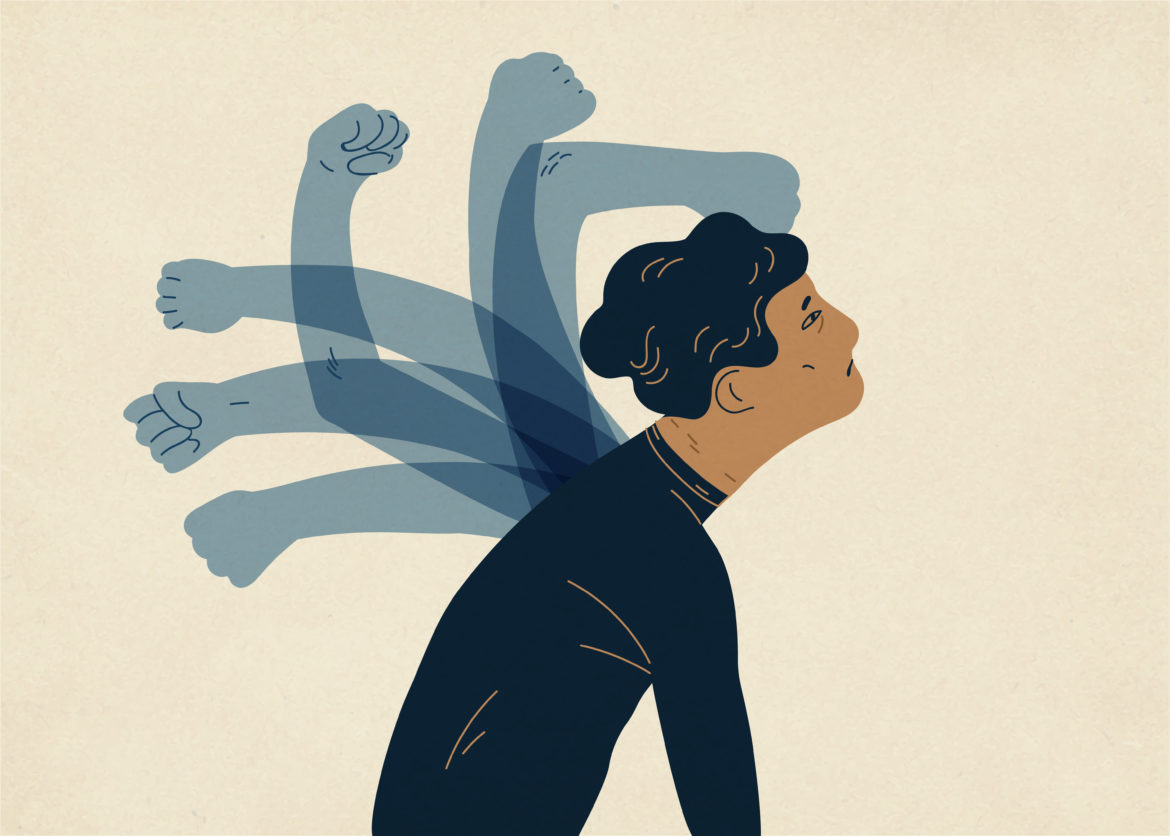People find it difficult to admit fault. We would rather receive an apology than apologize for our own wrongdoings. It is a position of power: having the ability to forgive someone or not, rather than being at the mercy of another, in a vulnerable position.
We all wish we could take back certain decisions. I do, frequently. The situations I could have handled differently keep me up at night, but I try not to let them eat me alive.
My father’s death was different: It continuously creeps up on me. The weekend of his death, a Saturday, I was with my mom and my girlfriend in Berkeley while my father stayed home in San Francisco. I had already decided to go home with my mother for the weekend instead of returning to him that night. The day before, on Friday, I slept at my friend’s, so the last time I saw him was on Thursday night.
Sunday morning, I had to go home and pick up my father’s Giants game tickets that my sister and I planned to attend later that day. We never reached the stadium. Instead, when I arrived home, I found my dad, dead on the floor.
I hate myself for not going home to spend time with my father, for not enjoying his company, for being selfish and only thinking of myself. It was not my mom’s weekend; I only went as I felt I didn’t spend enough time hanging out with her.
Even worse, if I were home, I believe he wouldn’t have gone out and unsuspectingly bought Oxycontin pills that were tainted and mixed with cocaine and fentanyl. He wouldn’t have taken those pills because even though he had been taking pills for over a year without anyone knowing, I never saw him do it. If I were home, he would not have suffered a slow, painful death.
It’s hard to forgive myself. Especially when I think about the part of my upbringing where I lived with my mom and there was domestic violence and abuse displayed to me, creating a very unstable household. There had always been violence and instability in my home to varying degrees but for the longest time I could not forgive my mom.
I could have helped them both
That was before I realized that while all this was happening, I never did anything. I realized that not forgiving my mom was essentially victim blaming, and even though she told me not to tell anyone about the horrors that occurred in the house, she was scared and she only wished to protect me.
My mother had her voice taken away and I never spoke up for her. I could have helped her, could have saved her such pain and anguish. For how damaged and scared I was and am, I never once stopped and thought about what my mom experienced, what she endured. When I would go to my dad’s house on the weekends, I got a break from my feelings of helplessness and hurt; she didn’t.
My father taught me to love myself, all of it. He told me to love both my Native and Spanish ancestry. As Malcolm X once said, “You can’t hate the roots of a tree and not hate the tree.” How can I not forgive myself and hate aspects of my being, and not say I hate myself? Since my father taught me this brand of self-love and acceptance, it is not fair to continue to hold this burden of self-blame.
But who can say that my father’s death was avoidable? Perhaps it was inevitable. My point is that if I am to be consumed by what ifs for the rest of my life, I will forget to live. My father would not want me to be stuck, he would want me to heal and live a prosperous life. He would want me to live the life he worked for, to take advantage of opportunities he never had, to live the life he never had the chance to. I am educated, I will soon be going to college, I would not be in this position had it not been for my father and I am eternally grateful.
I know that, given a second chance, I would speak up for my mom and defend her but what is in the past cannot be changed. What is important is that I acknowledge the past and learn from it so something like this cannot happen again. It is important to not continuously stay in the past and to move on. I forgive my mom and I would hope she could find it within herself to do the same.
After all, what good does holding grudges do? Why hold resentment, anger and dissent when those are destructive emotions that will not help you heal. It is about restorative justice, as only love can drive out hatred as Martin Luther King Jr. famously outlined. Everyone is looking for love, for acceptance, for understanding, for forgiveness. I can’t speak for others but I choose to relinquish “power” and will work on forgiveness, not for them, but for my own well-being.
Elias is a high school senior from Berkeley, Calif., who takes part in community writing workshops at HOMEY in San Francisco.
The Beat Within, a publication of writing and art from incarcerated youth founded by David Inocencio in San Francisco in 1996, also runs workshops at libraries, community-based organizations and schools. Weekly writing and conversation workshops are held in California, six other states and Washington, D.C. Submissions and new partners are welcomed. Write to him at dinocencio@thebeatwithin.org.

Pingback: Solidarity, Not Self-Flagellation - Base and Superstructure